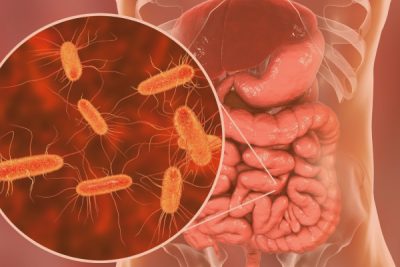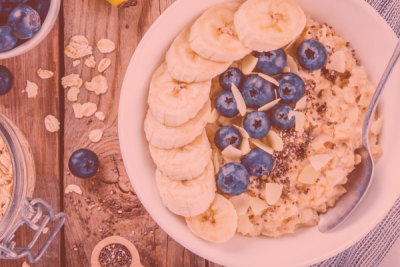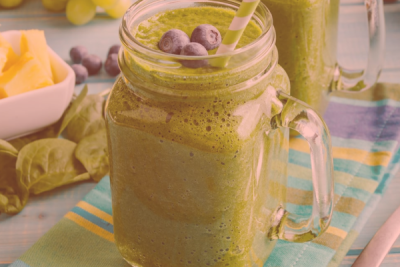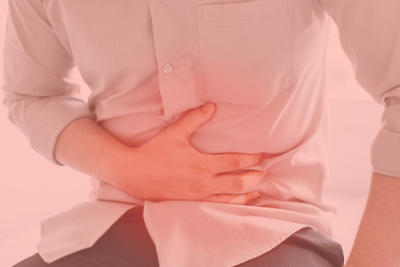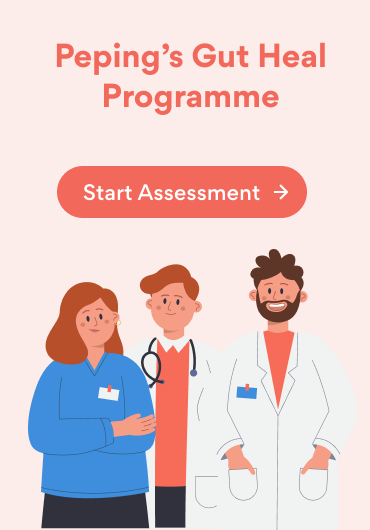Hey there, fellow worrier! We all know that gut-wrenching feeling when anxiety takes the stage and starts stealing the show. But did you know that your gut has a front-row seat to the whole spectacle? That’s right, your trusty tummy is like the ultimate drama critic, chiming in with its own set of opinions. In this blog, we’re delving deep into the captivating relationship between anxiety and gut health. Join us as we unravel the tale of the gut-brain connection.
The Dynamic Duo: Gut and Brain BFFs:
Your brain and gut are like two BFFs who have an extraordinary connection, in this case known as the gut-brain axis. Think of it as a secret tunnel where messages are constantly exchanged, keeping the brain and gut in sync, and supporting each other.
The gut-brain axis is a complex network of nerves, biochemicals, and signaling molecules that allows your gut and brain to engage in an ongoing conversation. It involves various components, such as the enteric nervous system (ENS), which acts as your gut’s own little brain, and the vagus nerve, a major pathway for information transmission between the gut and the brain.
Through this axis, the gut and brain influence each other’s functions and well-being. Your brain, with its thoughts, emotions, and stress responses, can send signals down the gut-brain axis that directly impact your gut. Likewise, your gut, with its intricate ecosystem of microorganisms and its production of various molecules, can send signals up the axis to influence your brain’s activity and overall mental state.
This constant dialogue is crucial for maintaining balance and harmony within your body. But when anxiety barges into the picture, it can disrupt this friendship and cause some serious tummy troubles. Anxiety triggers the release of stress hormones like cortisol, which can negatively affect the delicate balance of your gut microbiota—the diverse community of microorganisms residing in your digestive tract.
Studies have found that individuals with anxiety disorders often have an altered gut microbiota composition. These imbalances can lead to a range of digestive discomforts, including bloating, constipation, or diarrhea.
The gut-brain axis is an intricate system that highlights the intricate relationship between your emotions, thoughts, and gut health. By understanding how anxiety can interfere with this remarkable connection, we can explore strategies to support both our mental well-being and our gut’s equilibrium. So, let’s delve deeper into the impact of anxiety on the gut and discover ways to restore harmony in this dynamic duo.
Anxiety, Stress, and Your Gut Microbiota:
Anxiety is like the Grinch that steals Christmas from your gut microbiota. When anxiety strikes, stress hormones like cortisol flood your system, throwing off the delicate balance of your gut buddies. Recent studies have found that people with anxiety disorders often have a gut microbiota that’s a little “off.” These imbalances can lead to all sorts of digestive disorders. Let’s see how anxiety contributes to specific gut disorders, shall we?
- Bloating: Anxiety can contribute to excessive gas production and impaired digestion, leading to a feeling of bloating by increasing the sensitivity of the nerve endings in the gut. In normal circumstances, the gut is able to tolerate minor amounts of gas, however, when the sensitivity is increased, minor amounts of gas also cause bloating.
- Constipation: Anxiety and stress can impact the muscle contractions in your digestive tract, slowing down the movement of stool. This can result in constipation, making it difficult to have regular bowel movements.
- Diarrhea: On the other end of the spectrum, anxiety can also trigger an overactive gut, leading to increased motility and rapid transit of food through the intestines. This can result in loose, watery stools and frequent bowel movements.
- Acid Reflux: Anxiety can affect the functioning of the lower esophageal sphincter, the muscle that prevents stomach acid from flowing back into the esophagus. When this muscle becomes relaxed or weakened due to stress, it can lead to acid reflux, causing heartburn, chest discomfort, and a sour taste in the mouth.
- Irritable Bowel Syndrome (IBS): IBS is a chronic condition characterised by recurring abdominal pain, bloating, and changes in bowel habits, such as diarrhea or constipation. The exact cause of IBS is not fully understood, but anxiety sure does have a part to play in it. We’ve attempted to simplify this relationship with a step by step explanation of how exactly anxiety leads to IBS. Let’s dive in…
- Hormonal Havoc: When Anxiety Comes Knocking: Anxiety sets off a hormonal storm within our bodies, and one of the key players is cortisol, a stress hormone. When anxiety levels rise, cortisol is released. Elevated cortisol levels disrupt the balance of the digestive system, leading to increased sensitivity in the gut which in turn causes discomfort, pain, and alterations in bowel habits commonly seen in individuals with IBS.
- Breaching the barrier: Chaos in the Gut-Brain Axis: The gut and brain maintain a sophisticated line of communication through a pathway called the gut-brain axis. Anxiety disrupts the balance between the two as well as the enteric nervous system, embedded in the walls of the gut. The disrupted gut-brain axis can result in abnormal gut responses, such as heightened pain perception and irregular bowel movements. These abnormal responses contribute to the intensity of IBS symptoms.
- Red Alert: Anxiety Takes Charge: Anxiety puts the body in a state of hypervigilance, where it remains on high alert, constantly scanning for potential threats. Within the context of IBS, even minor sensations in the gut can be perceived as more intense or painful due to this heightened awareness. Individuals with anxiety may have a lower pain threshold, meaning they are more sensitive to gut sensations. This heightened sensitivity amplifies the discomfort and distress related to gut sensations, contributing to the severity of IBS symptoms.
- Gut Roulette: Anxiety’s Impact on the Microbial Balance: The gut is home to a diverse community of microorganisms collectively known as the gut microbiota. Anxiety can disrupt the delicate balance of this microbial ecosystem, leading to a condition called dysbiosis(associated with IBS). Anxiety-induced alterations in the gut microbiota can disrupt digestion, impair nutrient absorption, increase gut inflammation, and contribute to the manifestation of IBS symptoms.
- Behavioral Battles: Anxiety’s Influence on Our Gut Choices: Anxiety can influence our behaviors and mental well-being, including our relationship with food and our gut. Individuals with anxiety related to their IBS symptoms may develop avoidance behaviors or restrictive eating patterns. The fear of triggering gut symptoms leads them to avoid certain foods or situations, impacting their dietary choices. These behavioral changes can disrupt normal digestion, further contributing to digestive problems, including IBS.
- The Vicious Cycle: Anxiety, Stress, and Gut Distress: Living with anxiety brings about increased stress and worry about experiencing IBS symptoms. The psychological stress caused by anxiety further intensifies IBS symptoms, creating a vicious cycle. Heightened anxiety can lead to increased gut symptoms, such as pain, bloating, or changes in bowel habits. These intensified gut symptoms, in turn, further heighten anxiety, perpetuating the cycle of anxiety and gut distress.
Note: The connection between anxiety and IBS is complex and can vary from person to person. It’s important to approach this with a holistic mindset, addressing both anxiety and IBS symptoms to heal yourself.
Enteric Nervous System: Your Second Brain:
It’s time to meet your second brain! Did you know? Your gut has a special network of nerves called the enteric nervous system (ENS), which acts like a second brain in your belly. When you’re anxious, this “second brain” can go into overdrive, causing problems in your gut. It can disrupt things like gut movement, sensitivity, and the regulation of acid and mucus.
The ENS is a network of nerves in your digestive system that works independently but stays in touch with your main brain through the gut-brain axis. It senses what’s happening in your gut, processes information, and helps with digestion and absorbing nutrients.
When you’re stressed or anxious, the enteric nervous system can get too active and cause tummy troubles. Stress hormones like cortisol can affect it, as well as neurotransmitters like serotonin, which impact gut function and can be influenced by anxiety.
This hyperactive enteric nervous system can speed up gut movement, causing discomfort, cramps, or, well, multiple visits to the loo! It can also make the gut more sensitive, making pain or discomfort feel worse. That’s why anxiety and gut problems often go hand in hand, like in irritable bowel syndrome (IBS).
Understanding how anxiety affects this “second brain” helps us see how our emotions and gut health are connected. Taking care of our mental well-being can have a positive impact on our gut.
Inflammation: The Fiery Fallout of Anxiety:
Anxiety can sometimes set off a fireworks show of inflammation in your body, including your gut. Think of it as a full-on battle between your immune system and your gut lining. Chronic anxiety and stress can ignite this inflammatory storm, disrupting the harmonious atmosphere of your gut and wreaking havoc on nutrient absorption and the integrity of your gut barrier.
When anxiety triggers inflammation, it’s not just a localized reaction but a systemic response that affects various parts of your body, including your gut. Inflammation is the body’s way of mobilizing its defense mechanisms against perceived threats. However, prolonged or excessive inflammation can lead to collateral damage, contributing to a range of gut-related issues or exacerbating pre-existing ones. Conditions like irritable bowel syndrome (IBS), inflammatory bowel disease (IBD), and gastroesophageal reflux disease (GERD) can all be aggravated by the inflammatory fallout triggered by anxiety. Additionally, the inflammatory response can impair the absorption of nutrients from the food you consume, leaving your body deprived of essential vitamins, minerals, and energy.
There you have it, the relationship between Anxiety and your Gut in a nutshell. But, enough with the doom and gloom! Let’s talk about how to keep our gut and anxiety in check, shall we?
Welcome to our section on “Finding Zen and Gut Bliss…”
Mind-Body Swagger:
Channel your inner zen master with activities like deep breathing, meditation, or even dancing like nobody’s watching. These practices can help ease anxiety and indirectly give your gut a big, warm hug.
When you engage in deep breathing exercises, you provide your body with a boost of oxygen, triggering a relaxation response that calms both your mind and body. It’s like a gentle breeze that soothes the flames of anxiety and helps restore balance to your gut.
Meditation, on the other hand, allows you to tap into the power of mindfulness, bringing your attention to the present moment and cultivating a sense of calm and clarity. By focusing on your breath, sensations, or a specific mantra, you create a mental sanctuary that shields you from the chaos of anxious thoughts. As your mind settles, your body follows suit, easing tension and promoting a healthier gut environment.
Now, let’s talk about dancing. Dancing not only releases endorphins, those feel-good hormones that boost your mood, but it also serves as a physical outlet for stress and tension. It’s a joyful celebration of self-expression that can shake off the worries weighing on your gut. So put on your favorite tunes, and groove your way to a happier gut.
Mind-body practices not only help to alleviate anxiety but also have indirect positive effects on your gut health. By reducing stress and promoting relaxation, they contribute to a more balanced gut-brain connection. The release of feel-good neurotransmitters and the modulation of stress hormones help create an environment in which your gut microbiota can thrive, leading to a healthier gut-brain axis.
Feast of the Microbes:
It’s important to treat your gut buddies to the right kind of feast. Load up on foods rich in fiber, prebiotics and probiotics(think of them as friendly bacteria for your gut). Think fruits, veggies, whole grains, yogurt, and fermented goodies.
But you’ve heard enough about that from us. This time, let’s understand the relationship between anxiety and gut health by exploring a real case study conducted by researchers from the Shanghai Mental Health Center at Shanghai Jiao Tong University School of Medicine. In this
fascinating study, researchers reviewed 21 studies involving 1,503 participants, investigating the impact of regulating gut bacteria on anxiety symptoms.
Among the studies, some used probiotics (friendly bacteria) in foods, while others made dietary adjustments. The results were remarkable: more than half of the studies (52%) showed positive effects on anxiety symptoms through regulating gut bacteria.
Of the studies using probiotics, over a third (36%) reported reduced anxiety symptoms. Similarly, non-probiotic approaches in seven studies achieved an impressive 86% success rate.
Surprisingly, when combining interventions with usual treatment, non-probiotic approaches proved more effective in reducing anxiety symptoms. In studies solely focusing on gut bacteria regulation, 80% showed effectiveness with non-probiotic approaches, compared to only 45% with probiotic interventions.
Hence, the researchers suggested that dietary changes might have a stronger impact on gut bacteria growth than specific probiotic supplements. In fact, the use of different types of probiotics and the short intervention durations could have affected their effectiveness. Importantly, the interventions were generally safe, with only mild adverse effects like dry mouth and diarrhea reported in a few studies.
While this study is observational and cannot establish causation, it provides valuable insights into the potential benefits of regulating intestinal microbiota to alleviate anxiety symptoms. It reinforces the idea that our gut buddies thrive on a healthy feast of fiber, prebiotics, and probiotics. So, load up on those fruits, veggies, whole grains, yogurt, and fermented goodies, and give your gut party a boost!
Get Your Groove On:
Regular exercise not only helps kick anxiety to the curb but also keeps your gut in tip-top shape. It gets your digestive system moving, promotes good blood flow, and helps those happy hormones known as endorphins do their magic. Now, let’s explore some basic exercises you can do to keep both anxiety and gut disorders at bay.
- Brisk Walking or Jogging: Lace up your sneakers and hit the pavement. Taking a brisk walk or going for a jog not only gets your body moving but also helps clear your mind as you release pent-up tension and anxiety. The rhythmic motion of your steps can even have a soothing effect on your digestive system, stimulating peristalsis and aiding in the movement of food through your intestines.
- Dance Cardio: Turn up the music and let loose! Dancing isn’t just for fun; it’s an excellent way to combine exercise with self-expression. Dancing gets your heart pumping, releases endorphins, and its dynamic movements and rhythmic patterns engage your core muscles, promoting healthy digestion and circulation to your gut.
- Cycling: Hop on a bike and pedal your way to a happier gut. Cycling is a low-impact aerobic exercise that gets your legs pumping and your heart racing. The repetitive motion of cycling can have a soothing effect on your body and mind, while the increased blood flow to your gut helps nourish the digestive organs.
- Pilates: Channel your inner strength and engage your core with Pilates. By strengthening the abdominal muscles, Pilates supports healthy digestion and can reduce digestive discomfort associated with anxiety.
- Hatha Yoga: This practice combines gentle stretches with deep breathing techniques, promoting relaxation, stress reduction, and improved mental well-being. Specific poses like the seated forward bend (Paschimottanasana) and the reclining twist (Supta Matsyendrasana) can help stimulate digestion and relieve anxiety-related gut issues.
- Water Aerobics: Water aerobics can help reduce anxiety, boost mood, and improve gut motility. The gentle pressure of water on the abdomen can also provide a soothing massage-like effect on the digestive system.
Note: Exercising in water provides resistance while minimizing impact on the joints, making it ideal for individuals with physical limitations or joint pain.
- Tai Chi: Embrace the ancient Chinese martial art of Tai Chi, which combines slow, flowing movements with deep breathing and meditation. This gentle exercise promotes relaxation, reduces stress, and enhances mindfulness. The deliberate movements and focused breathing in Tai Chi can help alleviate anxiety while also supporting healthy digestion and gut function.
Seek Support:
If anxiety starts taking over your life, reach out to a healthcare professional who can offer guidance and support. Sometimes, a little chat can make a world of difference. When it comes to seeking support for anxiety or any mental health concern, it’s understandable that one may feel embarrassed, fearful, or hesitant. However, there are ways to reduce these feelings and make the process of reaching out for help more comfortable:
- Normalize Your Feelings: Remind yourself that experiencing anxiety is a common human experience. It’s estimated that millions of people around the world deal with anxiety, and seeking support is a step towards better mental well-being. Understanding that you are not alone can help reduce embarrassment or shame.
- Talk to Trusted Individuals: Reach out to a close friend, family member, or someone you trust and share your feelings. Discussing your concerns and anxieties with someone who cares about you can provide emotional support and perspective.
- Research Mental Health Professionals: Take the time to research mental health professionals in your area or consider online therapy options. Read reviews, check credentials, and find someone who specializes in anxiety or the specific concerns you have. Having information about potential therapists can help you feel more prepared and confident.
- Write Down Your Thoughts: If you find it challenging to articulate your feelings when approaching a healthcare professional, write down your thoughts and concerns beforehand. This can help you organize your thoughts and ensure that you address all your concerns during your conversation.
Remember, mental health professionals are trained to provide support and guidance without judgment. They are there to help you navigate your anxiety and work towards improved well-being. By reaching out for support, you are taking an important step towards a happier and healthier life.
Well, anxiety warriors, we’ve unraveled the fascinating connection between anxiety and gut health. Remember, your gut is like that “chaddi buddy” who always tries to keep up with your emotional roller coasters. By understanding the gut-brain dance and adopting strategies to manage anxiety, nurture your gut microbiota, and find your inner zen, you can pave the way for a happier, healthier gut and a more peaceful state of mind. So, breathe, laugh, and let your gut shine with blissful contentment!




